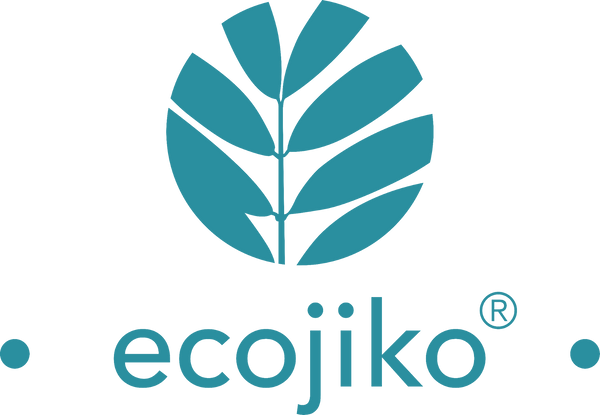In a world where sustainability is becoming a core value, making eco-friendly choices in our daily lives is more important than ever. One of the simplest switches you can make is from a plastic toothbrush to a bamboo toothbrush. But, what exactly makes them so special? Are they sustainable, and how do you dispose of them responsibly?
Visit our website to view our range of sustainable products such as kitchen items, gifts and brushes.
What makes them sustainable?
Sustainability is at the heart of this movement. Bamboo is one of the fastest-growing plants on Earth, with some species growing up to 35 inches per day. This rapid growth rate and bamboo's ability to thrive without pesticides or fertilisers make it an incredibly sustainable resource.
It is naturally antimicrobial, meaning it doesn't require chemical treatments to stay fresh and hygienic. This makes it an ideal material for toothbrush handles, which must withstand daily water exposure and bacteria.
Compared to traditional plastic toothbrushes, which can take over 400 years to decompose, these toothbrushes decompose much faster when disposed of correctly. However, the sustainability of them doesn't just stop at the handle—what about the bristles?

What Are the Bristles Made Of?
The bristles are a critical component. While the handle is biodegradable, the bristles are often made from nylon, a type of plastic. You might wonder why a sustainable toothbrush would use plastic bristles. The answer lies in the balance between practicality and eco-friendliness.
Plant-based bristles, such as those made from castor bean oil, do exist. However, they are often highly processed and transformed into a polymer that is far removed from its natural form. This processing diminishes the environmental benefits, as these bristles also take a long time to decompose. Additionally, plant-based bristles may not be as effective in maintaining oral hygiene standards, which is crucial for a toothbrush.
Nylon bristles, on the other hand, are durable, effective at cleaning teeth, and provide a similar experience to what most people are used to with traditional toothbrushes. While they aren't biodegradable, they represent a compromise.
Can You Recycle Them?
Recycling them can be a bit tricky due to the mixed materials—bamboo handle and nylon bristles. While the bamboo handle is biodegradable, the nylon bristles are not, which complicates the recycling process.
The good news is that many communities now offer recycling programs specifically for small plastic items like toothbrush bristles. You can remove the bristles from the bamboo handle and place them in your recycling bin, where they will be sorted and processed.
The handle itself is compostable and can be recycled as organic waste, or repurposed in creative ways around the house or garden.

Removing the Bristles
Before you can properly dispose of your toothbrush, you’ll need to remove the bristles. This process is simple and can be done with a pair of pliers:
- Grip the bristles: Use a pair of pliers to grasp a small section of the bristles firmly.
- Pull out the bristles: Gently pull the bristles out of the bamboo handle. They should come out in small clumps. Continue until all the bristles have been removed.
- Separate the materials: Place the removed bristles in your plastic recycling and set aside the handle for composting or repurposing.
This method ensures that the bamboo handle can decompose naturally without the bristles interfering with the process.
How to Dispose of The Brushes
Once you've removed the nylon bristles, the bamboo handle can be disposed of in several eco-friendly ways:
- Composting: The handle is fully biodegradable, making it perfect for composting. Simply place it in your compost bin, where it will break down over time, enriching the soil with organic matter.
- Repurposing: Get creative! They can be used as plant markers in your garden, crafting materials, or even as kindling for a fire.
- Landfill: If composting or repurposing isn't an option, the bamboo handle can be disposed of in the regular trash. While it will still end up in a landfill, it will decompose much faster than plastic.
Why Nylon Bristles Over Plant-Based Bristles?
Choosing nylon bristles over plant-based alternatives may seem counterintuitive for an eco-friendly product, but there are several reasons behind this decision.
- Durability: Nylon bristles are more durable and effective at cleaning teeth, ensuring that you maintain good oral hygiene without needing to replace your toothbrush too frequently.
- Minimal Processing: While plant-based bristles might sound like a greener choice, they require significant processing to transform them into a usable form. By the time they are ready to be used in a toothbrush, they are chemically similar to nylon and offer little to no additional environmental benefit.
- Availability: Nylon is widely available and has been extensively tested for safety and effectiveness in oral care. This ensures that consumers receive a reliable and consistent product.

A Small Switch with a Big Impact
Switching to a bamboo toothbrush might seem like a small change, but it can have a significant impact on the environment. By choosing a product made from sustainable materials, and by disposing of it responsibly, you can reduce your plastic footprint and contribute to a healthier planet.
Embrace the switch as part of a broader commitment to living more sustainably. Every little bit helps, and together, our choices can lead to a greener, cleaner world.
Take a look at our range of sustainable products and gifts! Read more about us and see our values and how we can work together to protect the planet.






